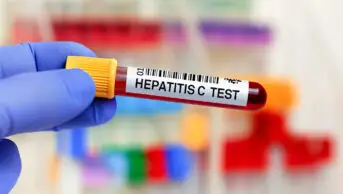
BSIP SA / Alamy Stock Photo
While needle syringe programmes (NSP) and opioid substitution therapy (OST) are known to be effective at reducing risky injecting behaviour, there is a lack of clear evidence that they lower the risk of hepatitis C virus (HCV) transmission.
In a Cochrane Review (online, 18 September 2017), researchers used data from 28 studies including a total of 11,070 uninfected injection drug users to explore the risk of HCV transmission during receipt of OST or participation in NSP[1]
.
They found that compared with no use, current use of OST (defined as use within the past six months) reduced the risk of acquiring HCV by around 50% and when combined with high NSP coverage may reduce HCV risk by 74%. However, there was a lack of consistent, high-quality evidence on the effectiveness of NSP alone.
The researchers said the results show the need to scale up access to these services and ensure NSP is available along OST to maximise effectiveness.
References
[1] Platt L, Minozzi S, Reed J et al. Needle syringe programmes and opioid substitution therapy for preventing hepatitis C transmission in people who inject drugs (Review). Cochrane Database Syst Rev 2017; 9:CD012021. doi: 10.1002/14651858.CD012021.pub2
You may also be interested in

Genomics surveillance programme for hepatitis C launched by UK Health Security Agency

How we treated more than 100 hepatitis C patients at pharmacist-led clinics in North Wales
